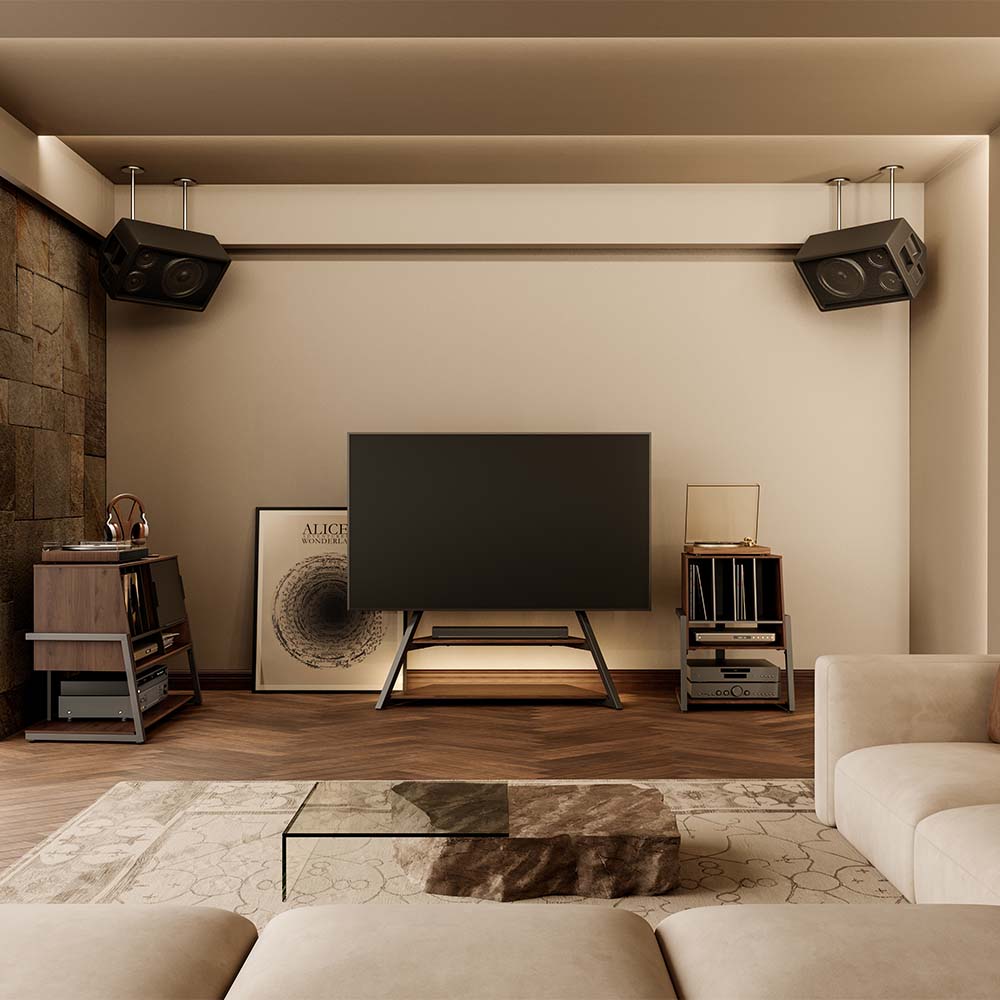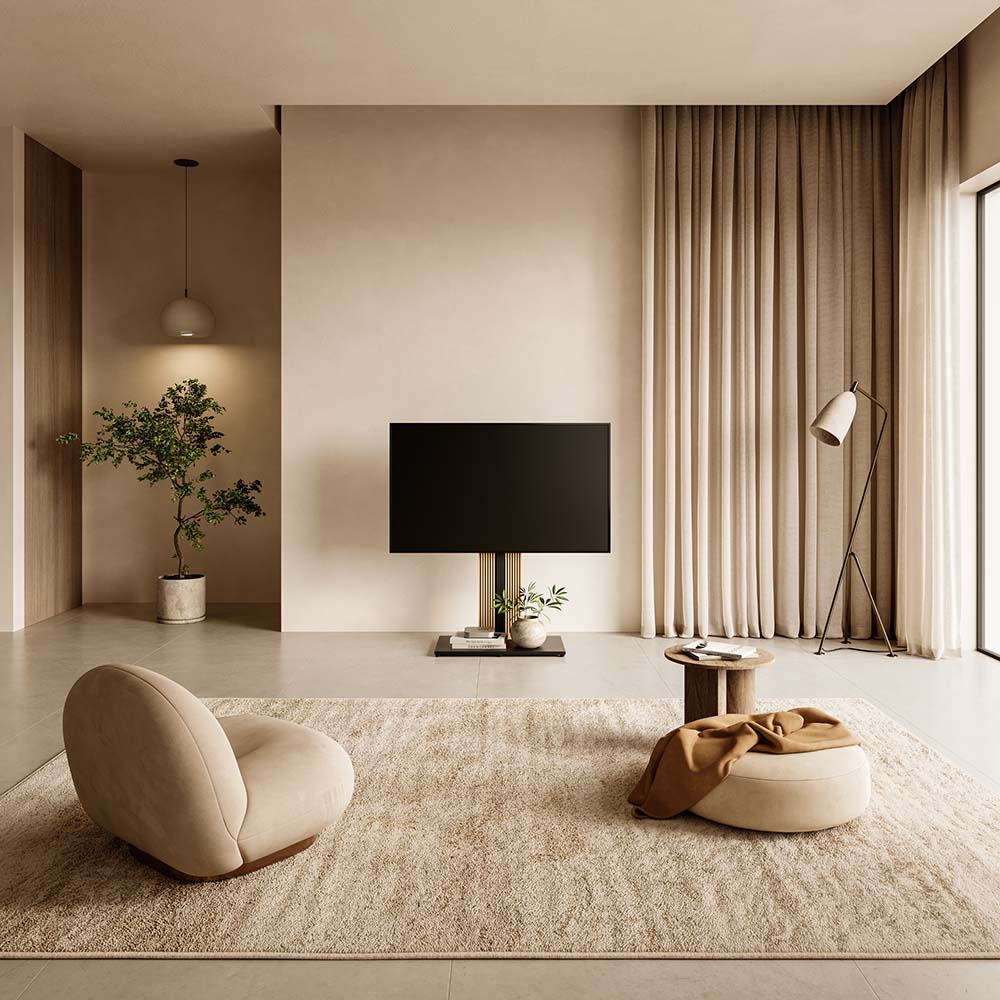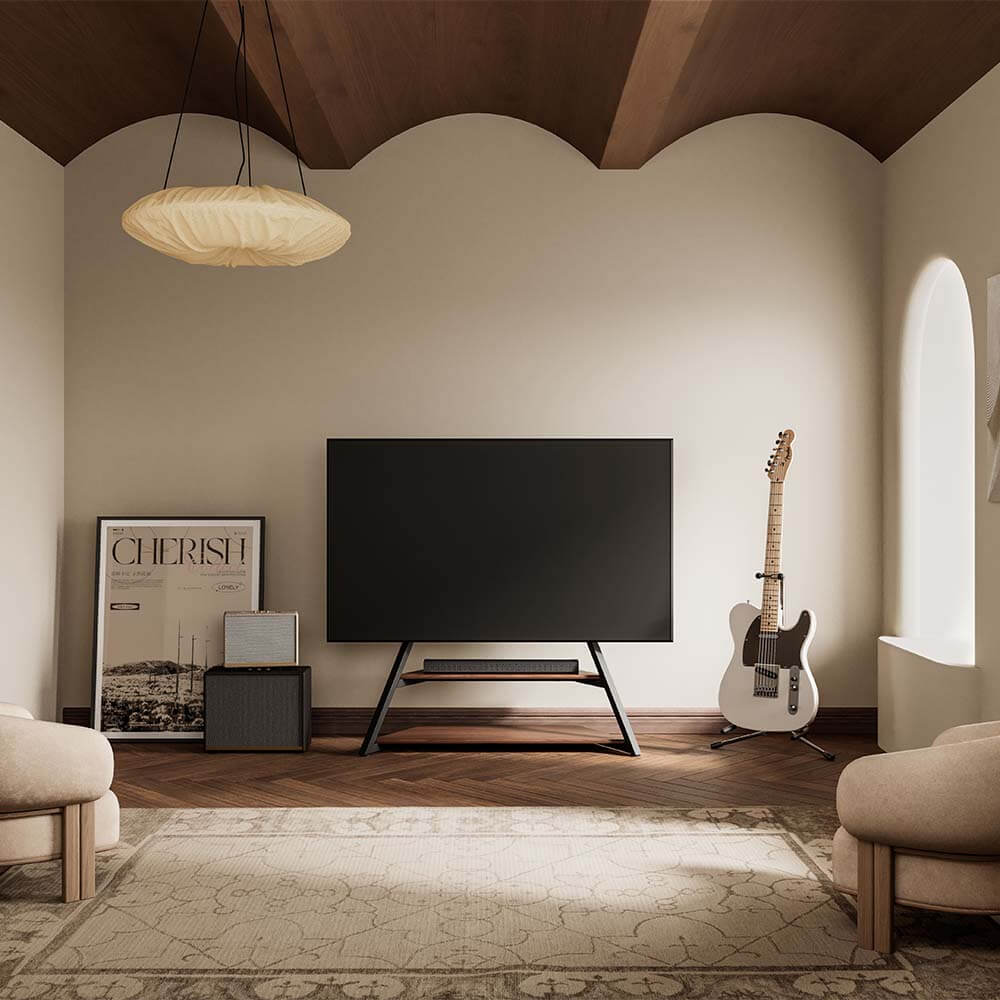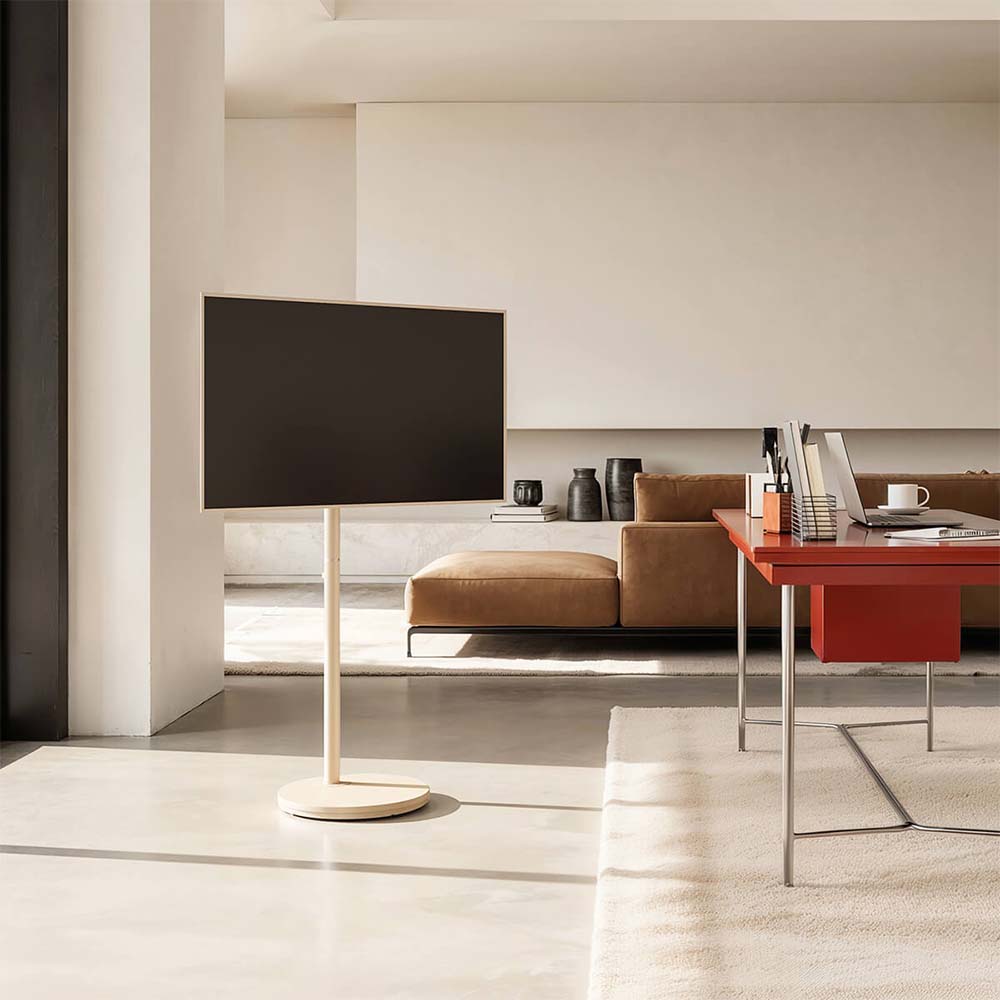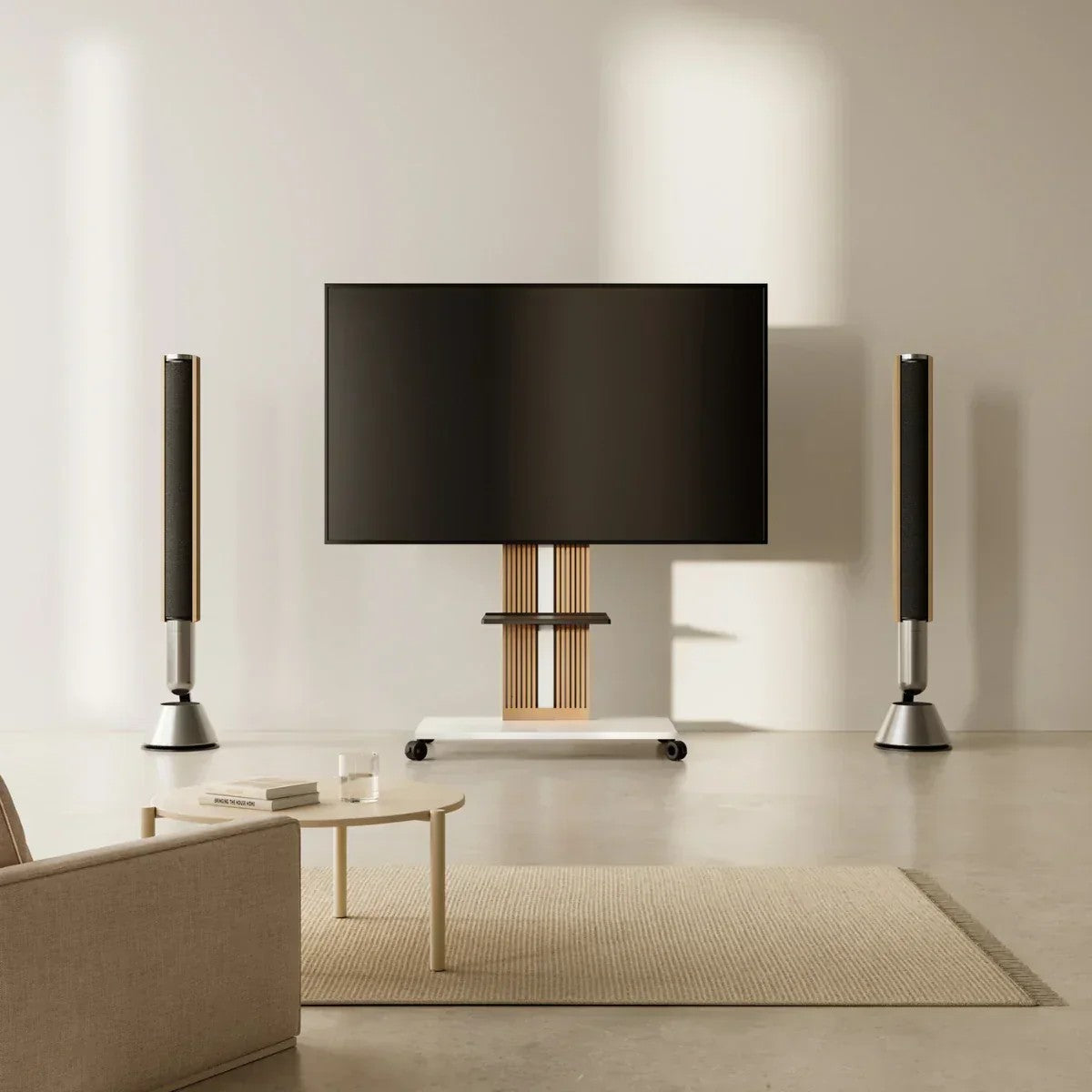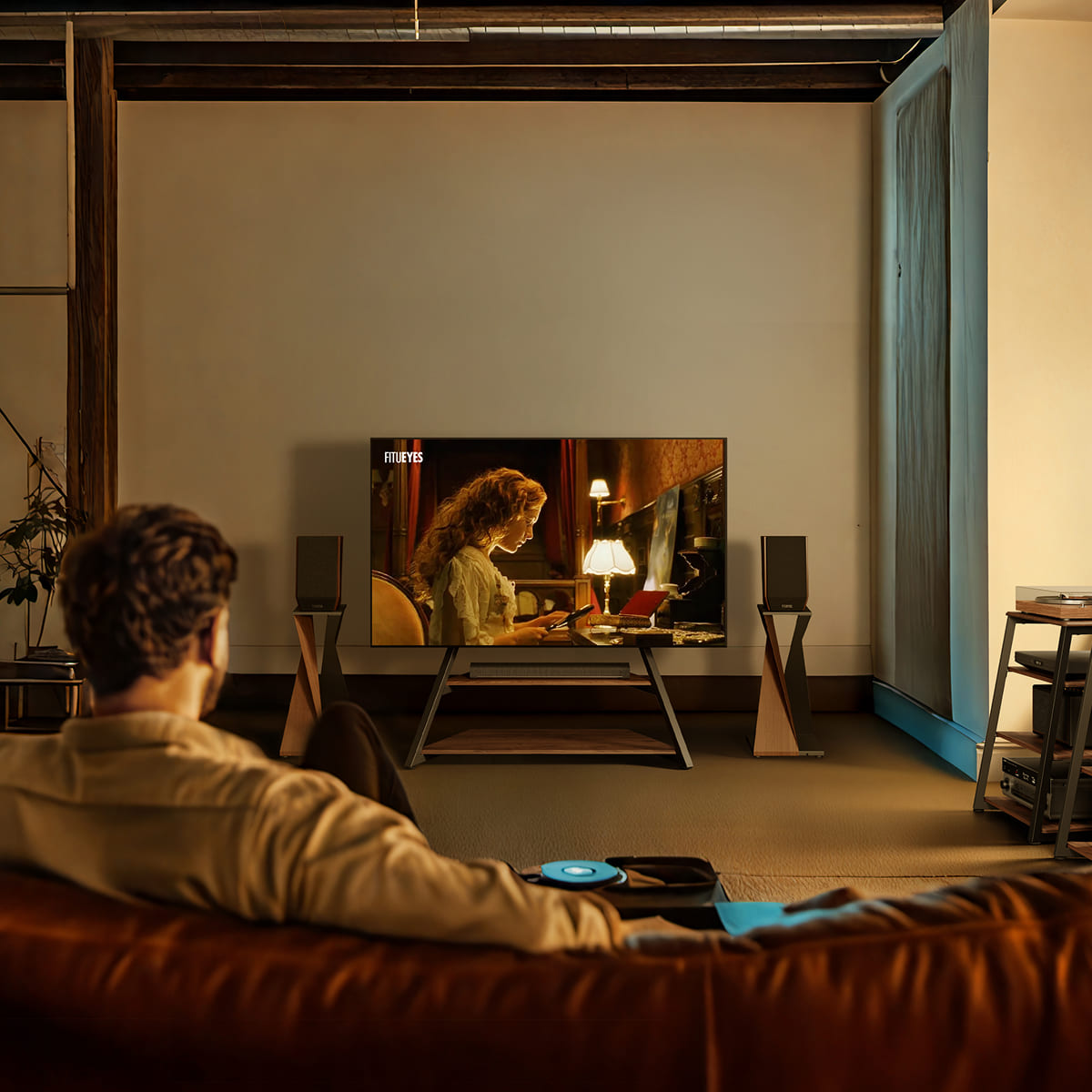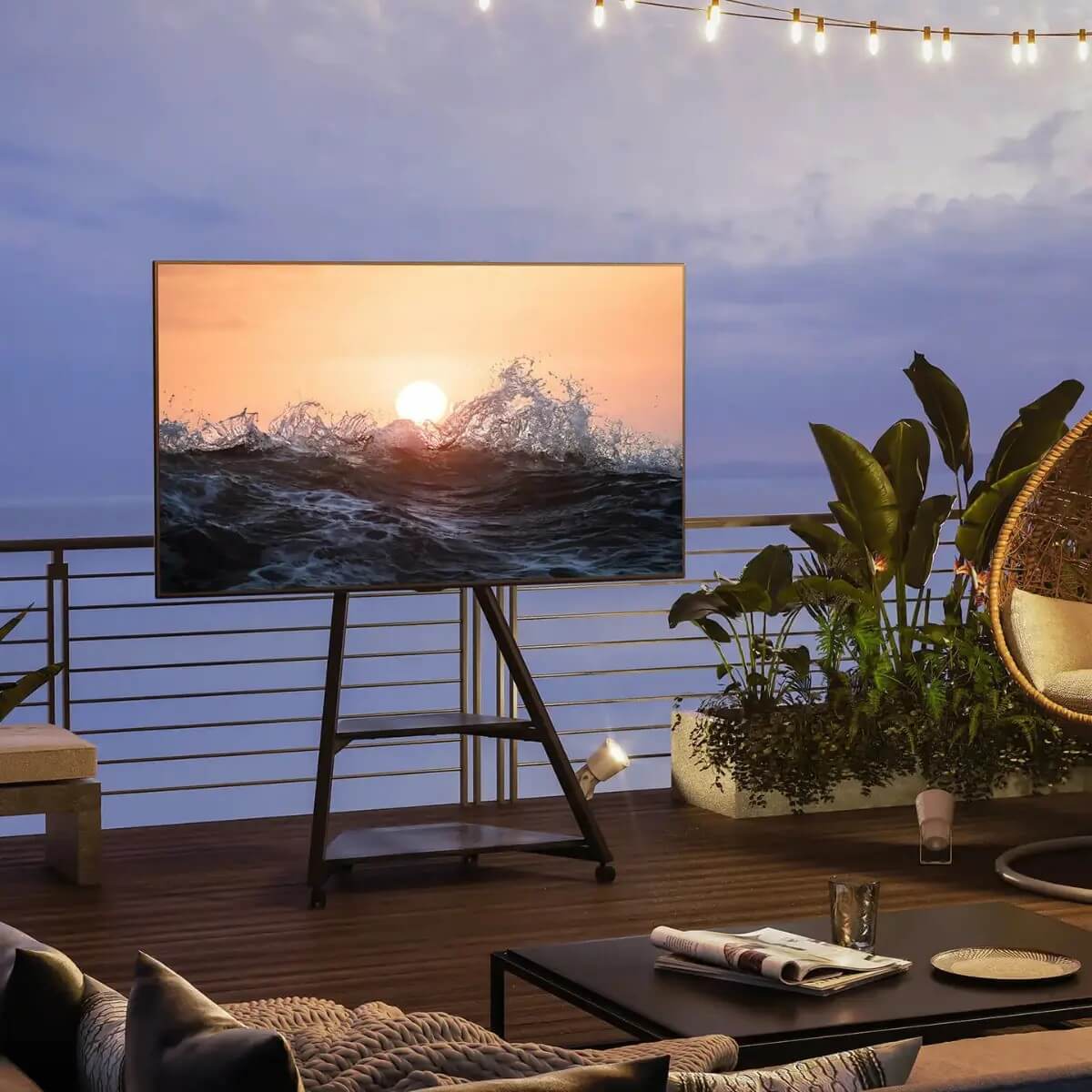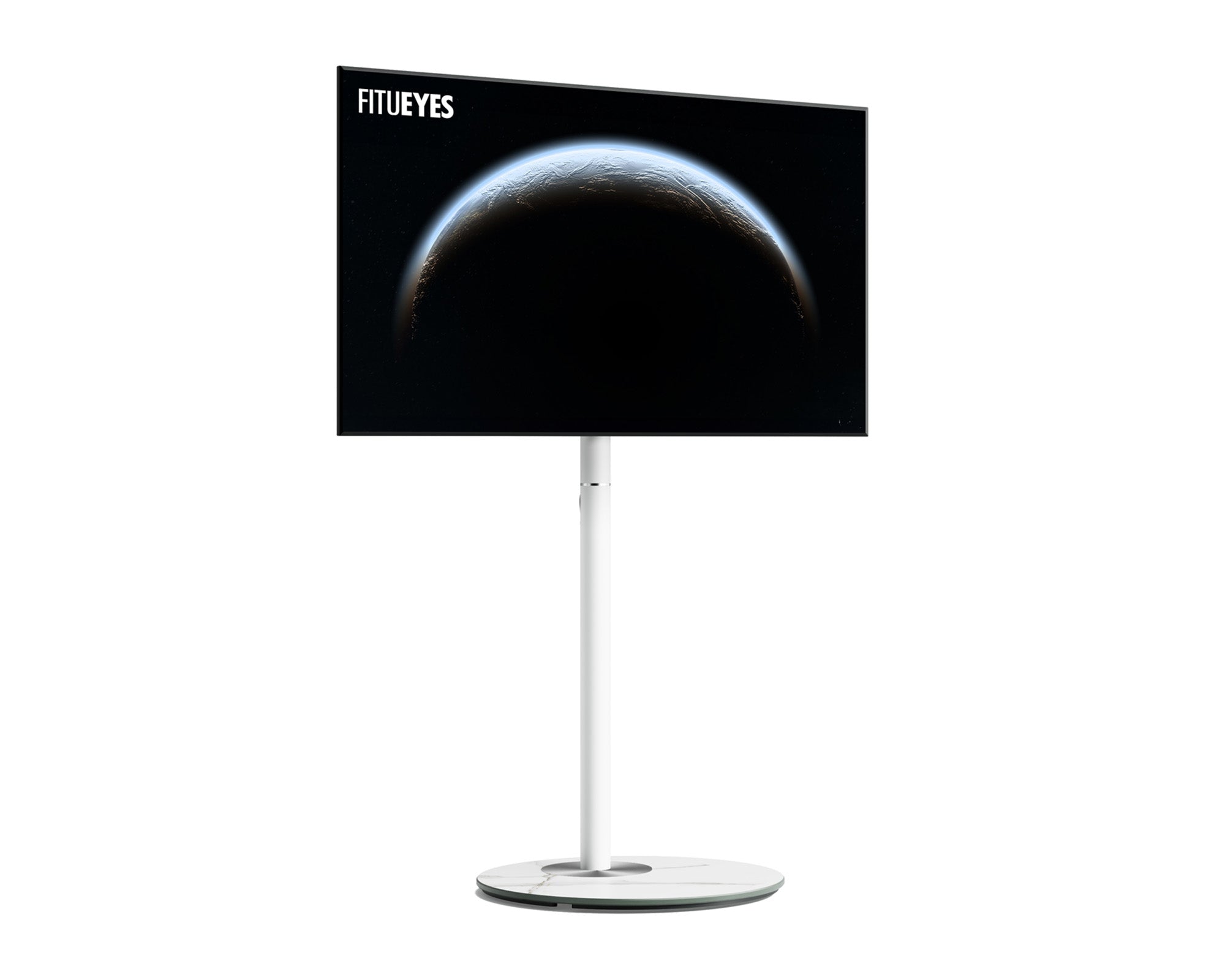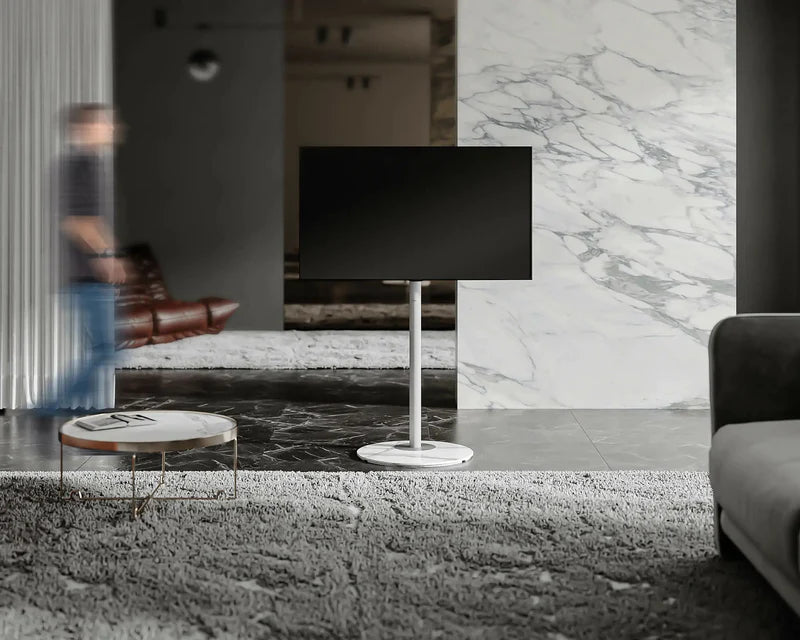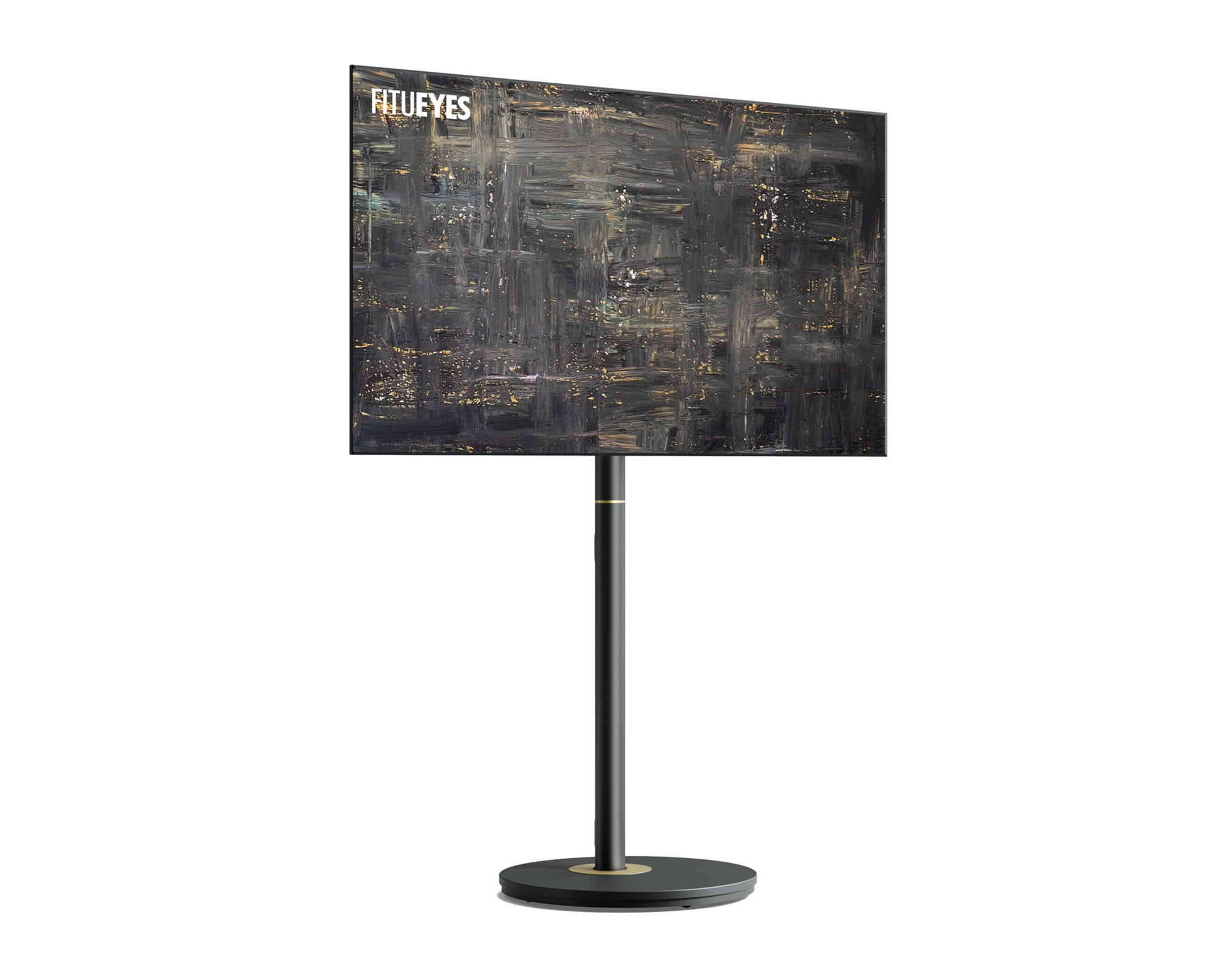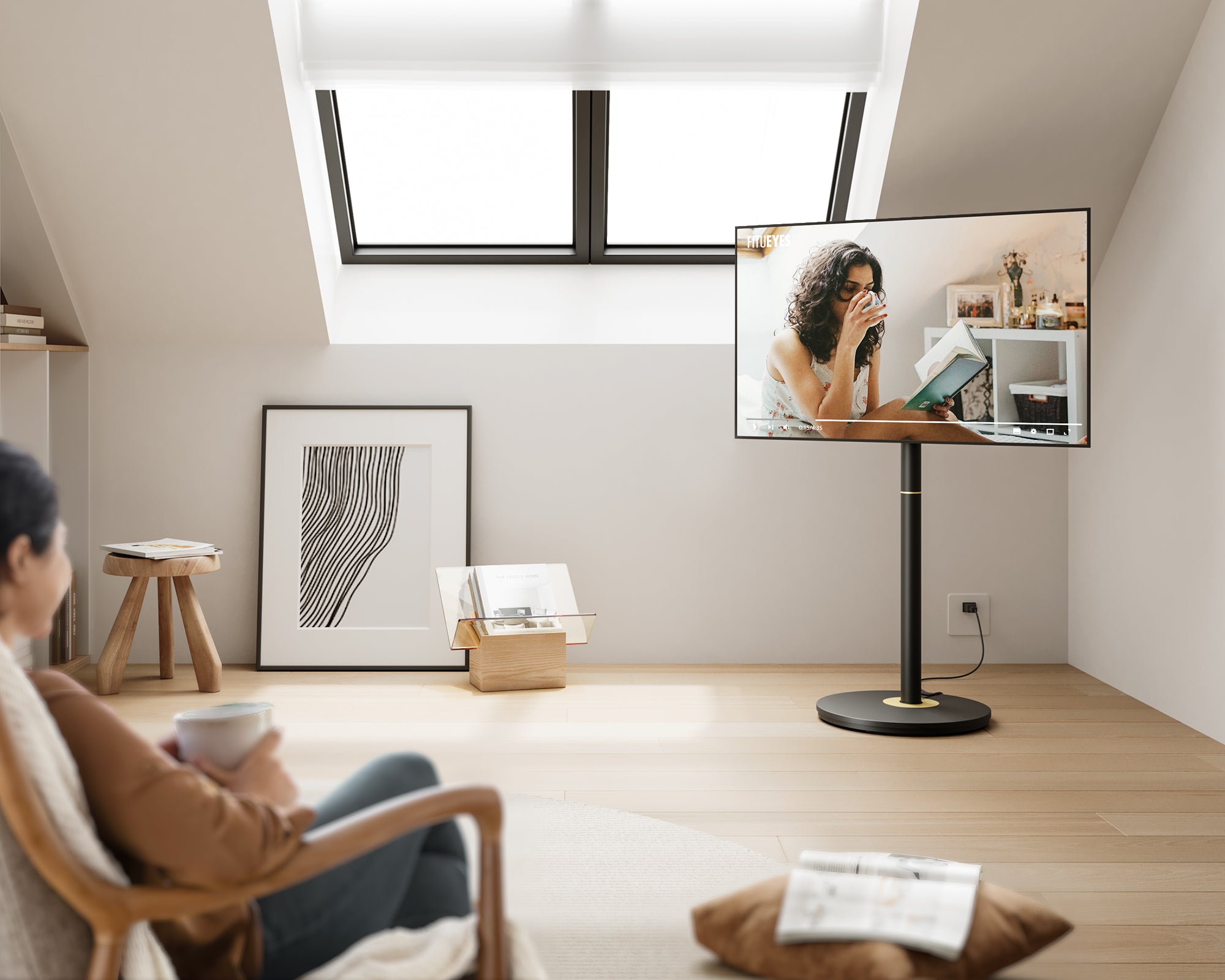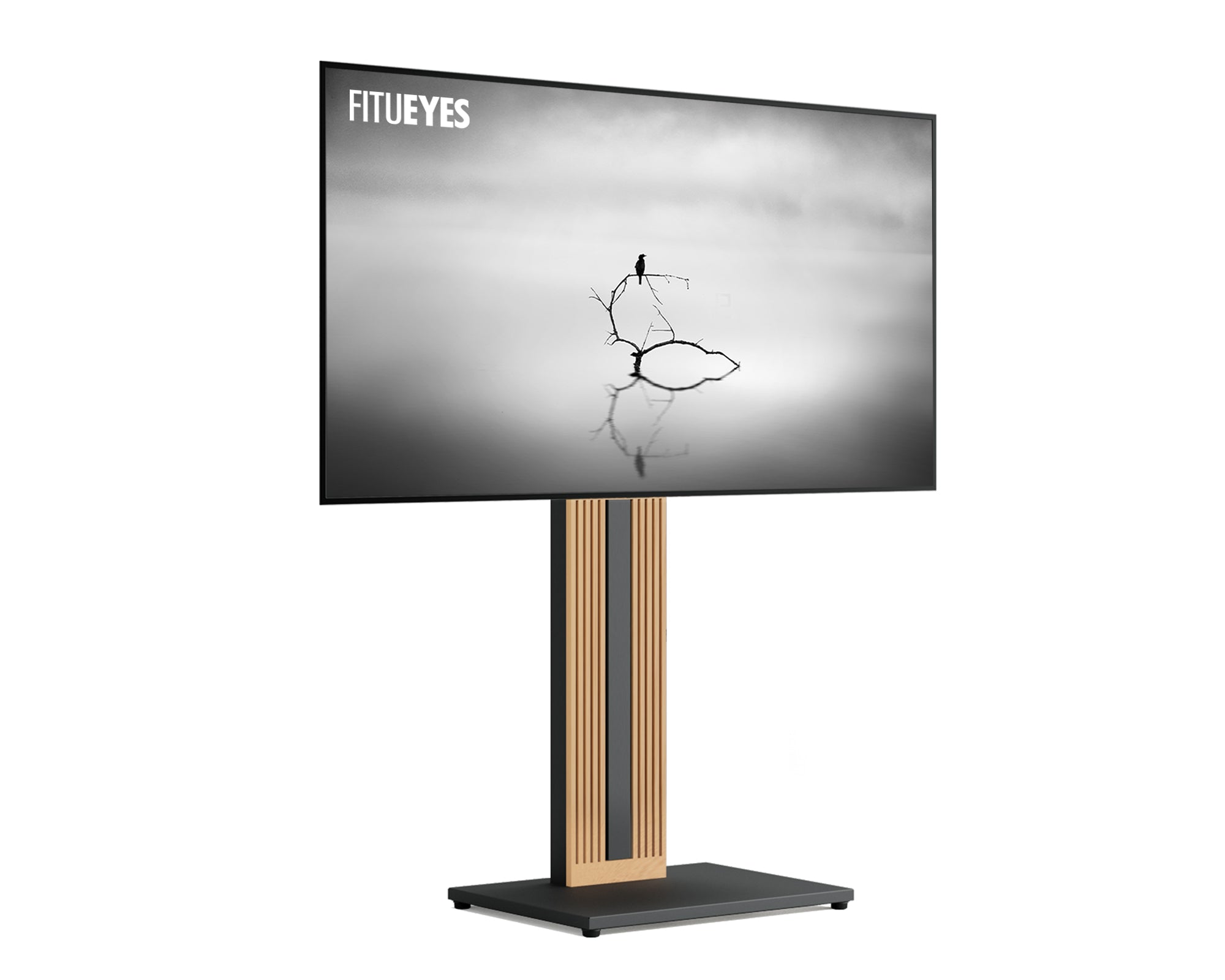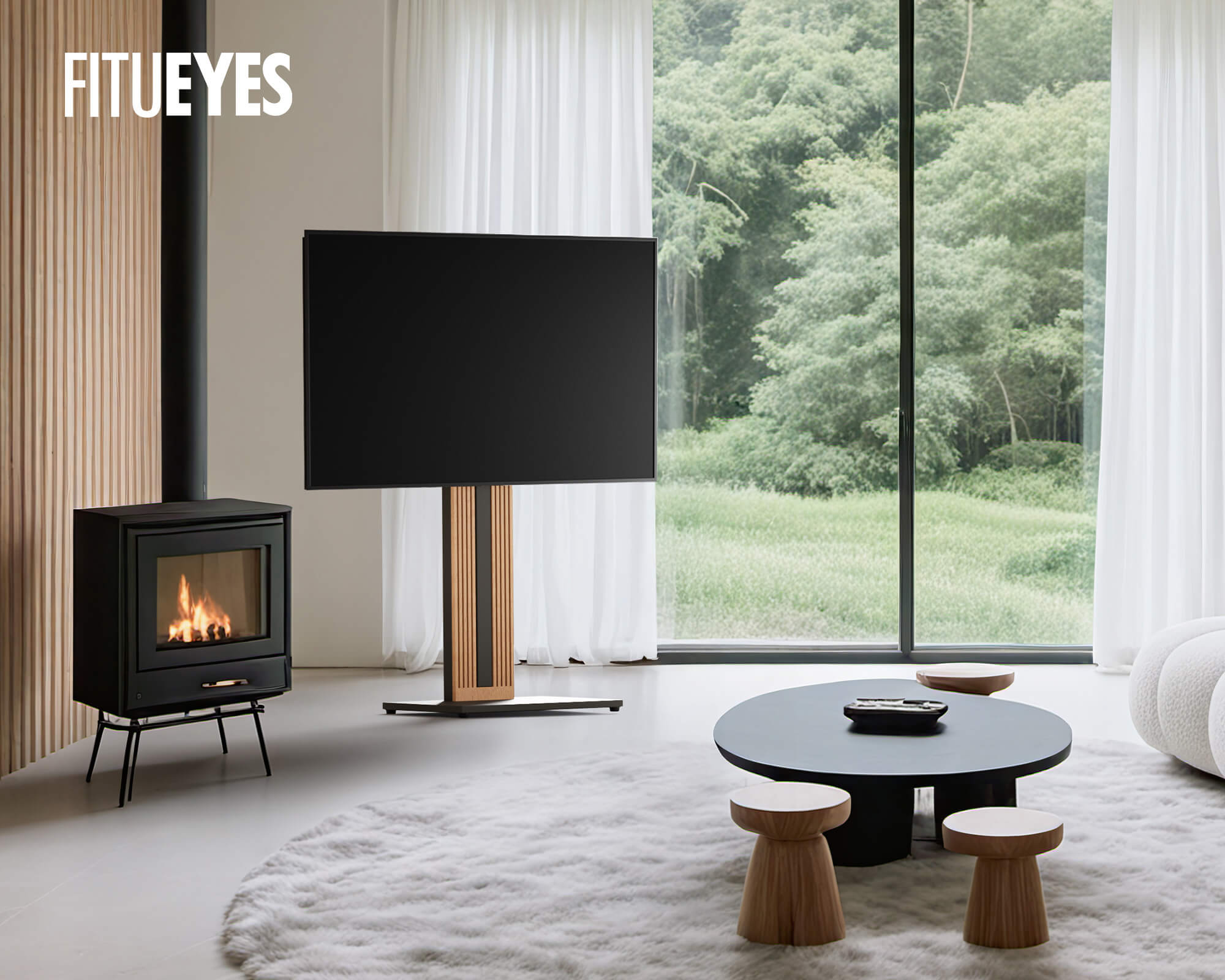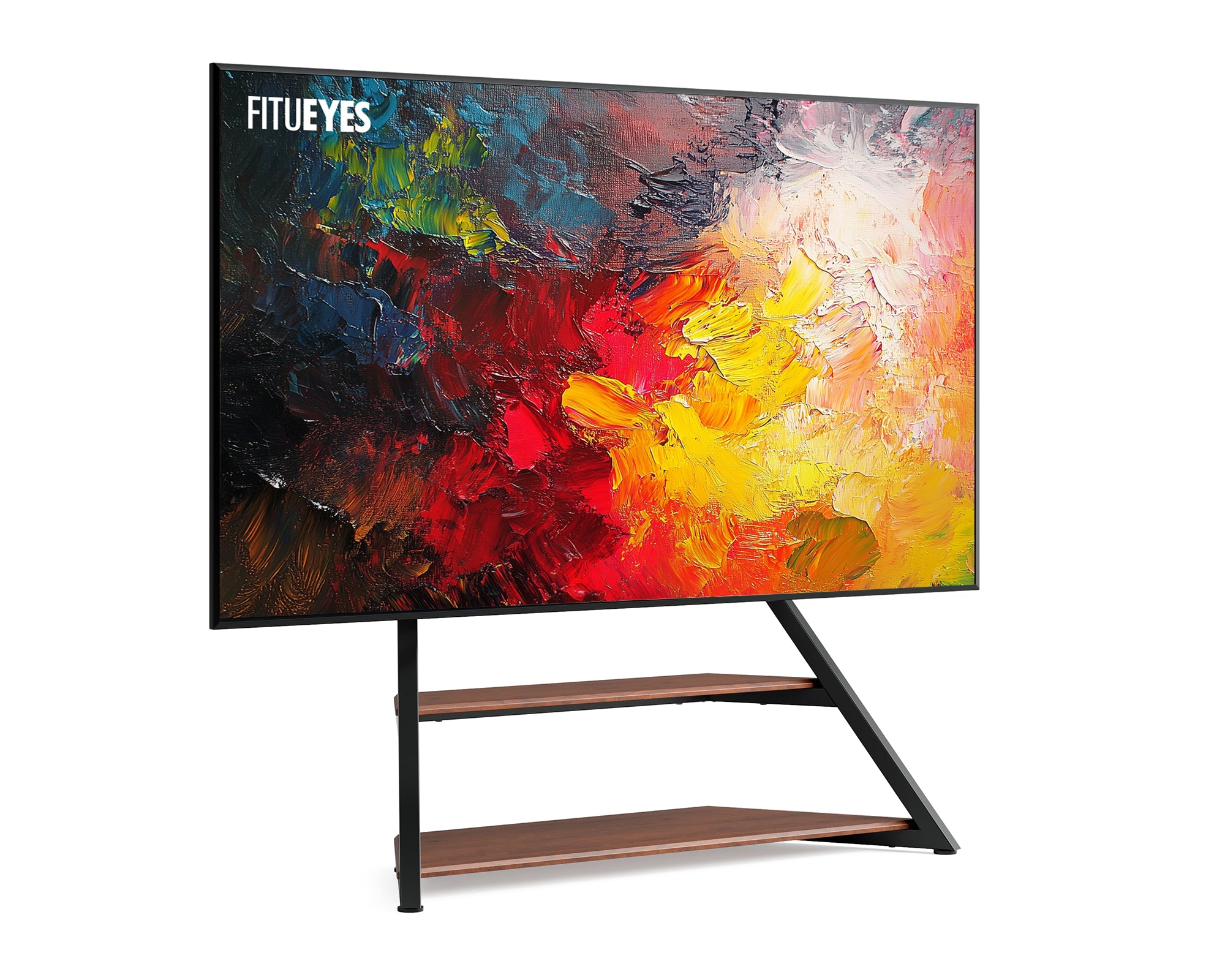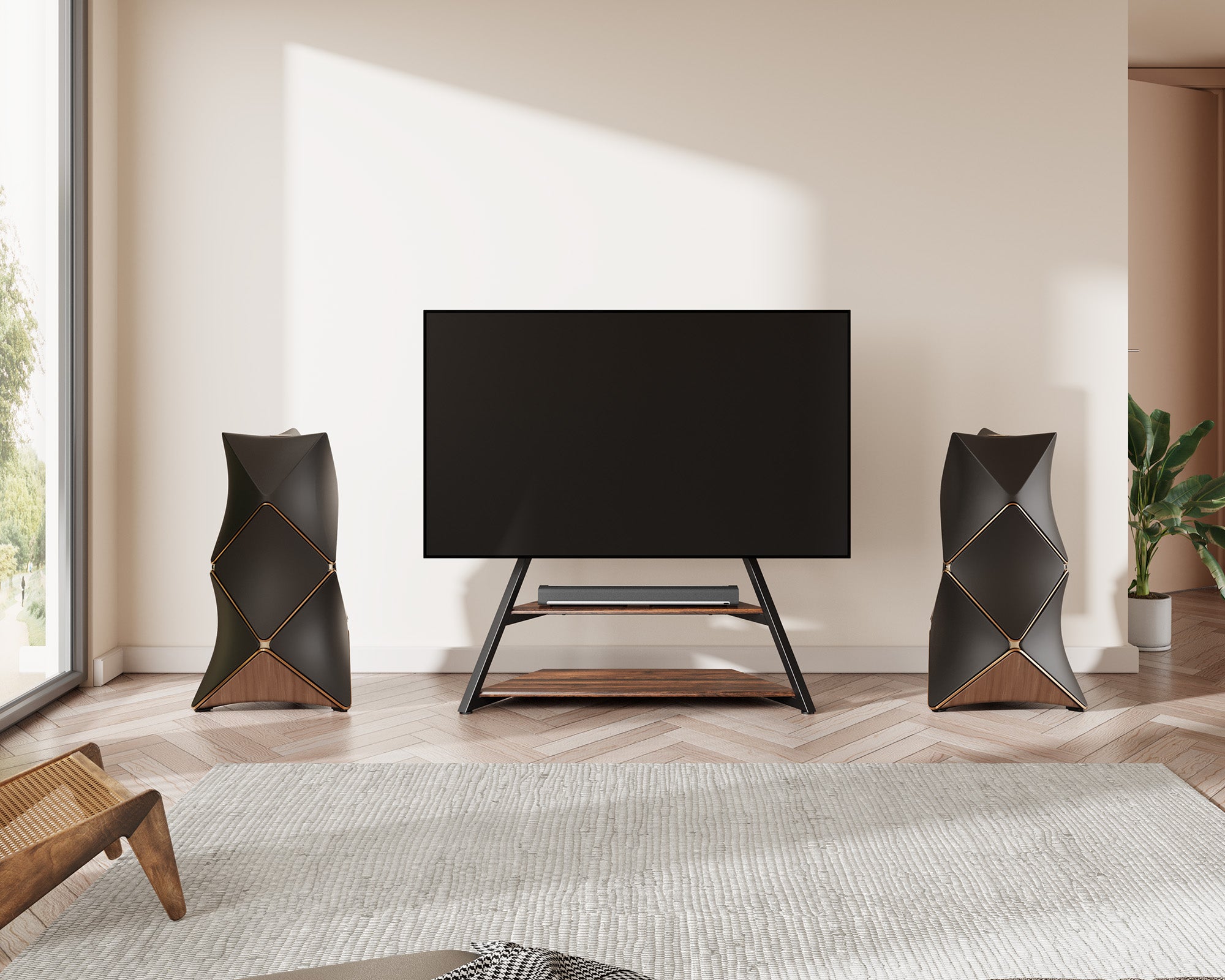Choosing the right TV stand or TV unit is important for both safety and style. A stand or unit that’s too small may not support your TV properly, while one that’s too large can overwhelm your lounge. Aim for a piece that’s 2–3 inches (5–8 cm) wider than your TV to ensure stability and a balanced look.
This guide covers everything you need—measuring your TV, choosing the right height, storage, materials, and style—so you can pick the perfect TV stand or unit for your home.
How to Measure Your TV for the Perfect Fit
Before shopping, take a few quick measurements to determine exactly what size TV stand you need.
Measure Your TV’s Width and Height
-
Use a tape measure to check your TV’s width (left edge to right edge) and height (top edge to bottom edge).
-
Write these measurements down clearly—they’ll be your main reference.
Choose a TV Stand Wider than Your TV
-
Select a stand that's at least 20% wider than your TV for safety and aesthetics.
-
Example: If your TV is 50 inches wide, choose a stand around 60 inches wide.

Selecting the Right TV Stand Height
Watching TV comfortably is crucial, especially if you spend hours binge-watching your favorite shows.
Ideal Viewing Height
- The centre of your screen should be at eye level when seated (≈ 42 inches / 107 cm from the floor).
- Adjust the height if your seating is higher or lower than average.
Adjustable TV Stands
-
Consider stands or consoles with adjustable height settings.
-
This flexibility lets you fine-tune the height exactly to your comfort.
Ensure Your Stand Can Handle Your TV’s Weight
Safety first! Ensuring your TV stand can adequately support your TV's weight prevents dangerous accidents.
Check Weight Capacity
- Check the weight capacity provided by the manufacturer.
- Large TVs (65"+) require sturdy stands or units made of solid wood or metal.
Stability and Anti-Tip Safety
-
Choose a stand that feels sturdy and well-balanced.
-
For homes with kids or pets, invest in anti-tip kits or stands specifically designed with extra stability features.
Matching Your TV Stand to Your Room Size
Your TV stand should blend seamlessly into your room, not overwhelm it or feel undersized.
Small Rooms and Apartments
-
Go for compact, multifunctional stands.
-
Consider a wood corner TV stand to maximize space and style.
Large Living Rooms
-
Larger stands or consoles can anchor the space and prevent the room from feeling empty.
-
Wider units often offer extra storage and shelving, ideal for additional electronics or decor.

Best Materials for TV Stands: What’s Right for You?
The material impacts both the look and durability of your TV stand.
|
Material |
Pros |
Cons |
|
Solid Wood |
Durable, timeless style |
Heavier, typically more expensive |
|
Engineered Wood |
Affordable, lightweight |
Less durable than solid wood |
|
Metal |
Extremely durable, modern look |
Can be heavy, style-specific |
|
Glass |
Elegant, minimalist design |
Fragile, needs regular cleaning |
-
Solid wood or metal stands are best for large TVs.
-
Engineered wood or glass works well for smaller TVs or stylish, modern interiors.
Storage and Cable Management: Keeping It Tidy
Nobody likes a messy TV area full of tangled cables and scattered remotes.
Look for Built-in Storage
-
Cabinets or shelves store gaming consoles, streaming devices, and other accessories neatly out of sight.
Effective Cable Management
-
Choose stands with cable holes, hidden channels, or compartments.
-
Good cable management keeps wires organized and prevents safety hazards.
Choosing a TV Stand That Complements Your Decor
The right TV stand should match your personal style and home decor seamlessly. If you're looking for a stylish yet space-saving solution, consider options like the FITUEYES Wood Corner TV Stand. Designed to blend perfectly into corners, it offers great stability, cable management, and a sleek design ideal for smaller rooms.
Match Your Existing Furniture
-
Look at your existing decor and choose materials or colors that blend naturally.
-
Wood finishes like oak or walnut suit traditional spaces; black, white, or metal are great for modern rooms.
Balancing Functionality and Style
-
Don’t sacrifice practicality for looks. Select a stand that combines aesthetics with useful features like storage or adjustable heights.

FAQs
Can My TV Stand Be Smaller Than My TV?
-
Generally, no. A TV stand narrower than your TV risks instability and an awkward appearance. Always opt for one slightly wider than your TV.
How High Should a TV Stand Be?
- Typically 20–24 inches (51–61 cm), placing the screen centre at eye level when seated.
Is It Better to Wall Mount or Use a Stand?
-
Both have advantages:
-
Wall mounts save space and look sleek.
-
Stands provide storage, are easier to install, and often offer better cable management.
Recommended TV Stand Sizes: Quick Reference Chart
|
TV Size |
TV Width (approx.) |
Recommended Stand Width |
|
32-inch |
28 inches |
32–40 inches |
|
43-inch |
38 inches |
44–50 inches |
|
50–55 inch |
44–48 inches |
52–60 inches |
|
60–65 inch |
52–57 inches |
62–70 inches |
|
70–75 inch |
61–66 inches |
72–80 inches |
Final Thoughts: Making the Right Choice
Selecting the correct TV stand size ensures not only an aesthetically pleasing setup but also a safe and comfortable viewing experience. Consider your TV size, room dimensions, storage needs, and personal style to choose the best stand for your home.







